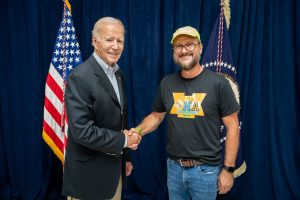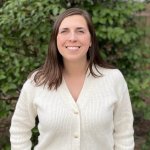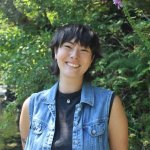David Southgate
Playa de Ponce, Puerto Rico
David C. Southgate is active in justice-focused community-based climate adaptation as a scholar, a land-use practitioner, and community activist. He is a 2020 – 2022 Ralph Johnson Bunche Distinguished Graduate Fellow and Ph.D. student in Public Affairs/Community Development at Rutgers University-Camden. He is interested in how planning and other social processes shape climate adaptation and produce just environmental and social outcomes in the Afro-Latino / Afro-Danish US territories of Puerto Rico and the US Virgin Islands. Southgate got his start in environmental justice and land revitalization in Puerto Rico. Today, Southgate provides technical assistance to channel institutional partnerships and funding that address community-identified land-use priorities. He is a neighborhood activist and volunteer with the community-based organization Un Nuevo Amanecer in Playa de Ponce, Puerto Rico, and serves on the leadership council of the Climigration Network.
About Un Nuevo Amanecer: Prior to Un Nuevo Amanecer (UNA)’s formation in 2018, founding members organized citizen science and beach clean-ups, a rain garden, and advocated for better conditions. With philanthropic support and technical assistance, UNA has undertaken several climate and resilience initiatives. UNA implemented a solar and potable water resilience hub, reforestation projects, a nursery for food production and distribution, and has developed an inventory of unused properties and areas prone to flooding with an eye to transforming these into a Community Land Trust to provide community goods, economic, physical, and social resilience for neighbors.
This interview was conducted by Carly Schmidt on April 19, 2023. Follow the work of Un Nuevo Amanecer on Facebook.
Carly Schmidt: You recently secured $1.1 million in funds and technical assistance to address infrastructure inequities in Playa de Ponce, which is a process many of our network members are navigating. Tell me about this community and what moved you to work toward securing these funds with them?
David Southgate: Playa is actually the largest coastal barrio by population on the south side of the island. And we aren’t one community, we are 19 neighborhoods. The equivalent of this in the United States might be Brooklyn and all its boroughs. I live in Playa de Ponce and what moved me to work towards securing these funds for us? My existing relationship with the leadership at this community-based nonprofit called Una Nuevo Amanecer began in 2016 when I was approached by the co-founder of UNA because of my work in environmental justice as a consultant. He said, “We’ve got flooding, we’ve got sewage infiltration,” and he heard about some citizen science work that I’d done with another community around air quality. That same week, EPA published a request for proposals to borrow their equipment for water quality testing. It didn’t come with any money for agents and supplies. We needed to raise that money, and we did. The community did an amazing job [at water quality testing] and we’ve been able to use that data as evidence of the issues of water contamination in the public water bodies that pass through our barrios.
Then Hurricane Maria happened in 2017. It made me realize how vulnerable certain neighborhoods in our barrio are. That vulnerability is spatially dispersed. It is representative of historic inequities [in Playa de Ponce] in how people settled this barrio. And the final step in being able to secure these funds and technical assistance was an introduction to Anthropocene Alliance by my friend and colleague Mr. Hilton Kelley. He mentioned to the Executive Director that I might be a good partner in the issue of adaptation to climate change. This relationship opened doors to a network of technical assistance and funding providers that really shouldn’t be channeled through one individual. I reached back out to UNA and asked them to adopt this relationship with Anthropocene Alliance, and that’s what happened. Now we’re all really excited about the opportunity for more funding but, as you might imagine, it’s not quite as smooth a ride as we expected.
Carly Schmidt: What was challenging in securing this and more funding for the community with Un Nuevo Amanecer?
David Southgate: This wasn’t my first rodeo working with grants and grant proposals. However, this was my first time as an activist and a volunteer working with a community-based nonprofit that is volunteer-run. When we started organizing these grants, UNA did not have a 501(c)(3) designation. We do as of November 2022, which presents a bunch of new challenges institutionally. But, at the time, it meant that we needed fiscal sponsors to secure grants. Professionally, I’d worked with fiscal sponsors, but never as an activist and community member. I was really surprised at how problematic the fiscal sponsorship relationship can be for communities because the sponsors are not without interests. They will compete for the same grants that we want them to sponsor for us, they will deny sponsorships for grants that are important for us as a community, and they will freeze us out after we’ve done all the work of pulling the proposal together. That was all disconcerting and, I will say, unpleasant.
Carly Schmidt: That’s a nice way of putting it.
David Southgate: Well, to be diplomatic about it. If I were to give advice to other folks who are using fiscal sponsors, make sure you’ve got more than one as a possibility to work with. Don’t sign an exclusive arrangement with one [fiscal sponsor]. Make sure you have clear accountabilities and roles established going into the sponsorship prior to the submission of a grant proposal. These were learning moments for us. These things really took me by surprise, having been a practitioner in the field for so long.
Carly Schmidt: What were some of your challenges in navigating these many different funding sources?
 David Southgate: The challenges have to do with us being lived-experience experts in our community. This kind of expert, until more recently, has not been respected by the technocracy within the bureaucratic agencies of government. So, we must look very closely at these partnerships with a goal of getting better infrastructure, so people aren’t exposed to these hazards. President Biden visited us right after Hurricane Fiona. The challenge is being recognized for our legitimacy as lived-experience experts in planning processes because when the oppressed people begin to stand up the oppressive forces in our society tend to discredit us. We need to be ready for that because it’s already started. Personal attacks, marginalizing experts. And we also have to be aware that partnership ideologies don’t necessarily match the diverse ideologies that exist within our communities. Communities aren’t homogenous. They represent multiple perspectives, needs, and wants. There’s a desire in our neoliberal society, that’s also very much in Playa de Ponce, to build community and individual wealth. But are the opportunities presented to us legitimately viable? Or do they match up with what we think we can do? You all [River Network] helped us identify the nuisance sites within our barrio. We’re still working to create conceptual ideas for the redevelopment and recovery of those sites for community benefit, with an eye for creating a Community Land Trust, which could build a workforce and community wealth. If this is what people want to do in our neighborhoods, we should get behind it. UNA has the opportunity to lead in this space. The leadership coming out of Puerto Rico is very encouraging. We have to get together, we have to talk to each other, and learn from and respect our experiences.
David Southgate: The challenges have to do with us being lived-experience experts in our community. This kind of expert, until more recently, has not been respected by the technocracy within the bureaucratic agencies of government. So, we must look very closely at these partnerships with a goal of getting better infrastructure, so people aren’t exposed to these hazards. President Biden visited us right after Hurricane Fiona. The challenge is being recognized for our legitimacy as lived-experience experts in planning processes because when the oppressed people begin to stand up the oppressive forces in our society tend to discredit us. We need to be ready for that because it’s already started. Personal attacks, marginalizing experts. And we also have to be aware that partnership ideologies don’t necessarily match the diverse ideologies that exist within our communities. Communities aren’t homogenous. They represent multiple perspectives, needs, and wants. There’s a desire in our neoliberal society, that’s also very much in Playa de Ponce, to build community and individual wealth. But are the opportunities presented to us legitimately viable? Or do they match up with what we think we can do? You all [River Network] helped us identify the nuisance sites within our barrio. We’re still working to create conceptual ideas for the redevelopment and recovery of those sites for community benefit, with an eye for creating a Community Land Trust, which could build a workforce and community wealth. If this is what people want to do in our neighborhoods, we should get behind it. UNA has the opportunity to lead in this space. The leadership coming out of Puerto Rico is very encouraging. We have to get together, we have to talk to each other, and learn from and respect our experiences.
Carly Schmidt: What were your takeaways on the technical assistance side, and can you explain what technical assistance means for those who might not know?
David Southgate: Technical assistance is basically the loan of someone’s experience and talent to a community, to help the community focus on an issue of priority for the community. As a community development practitioner, I can tell you that technical assistance often comes with no money to pay the community members to work and organize. Everyone is expected to be a volunteer on the community side. The experience of being on the community side made me realize how much work it is to actually organize these grants and organize a technical assistance offer without any financial assistance. It is not a sustainable model for anyone who doesn’t have very deep pockets. You’re forcing people to make choices. If someone is doing something for the community as a volunteer, they’re not earning money to pay their bills. That is not a dynamic that is fair for historically underserved communities. It is an equity issue. The more I speak to colleagues who are learned-experience experts on the front lines of climate change, the more I’m hearing that they are not interested in technical assistance that does not come with money, especially if the technical assistance provider is expecting the community to do all the heavy lifting.
Carly Schmidt: Do you have an example of a technical assistance program that went well or was a positive experience for the folks in Playa de Ponce?
David Southgate: This is a fantastic one and a beautiful example of how technical assistance can be done right. I have colleagues at the Climigration Network. They are a small organization emerging from the Consensus Building Institute, so they’re very adept at bringing folks together for conversations. These folks, Anthropocene Alliance, the Lincoln Institute of Land Policy, and Buy-In Community Planning came together, sought out funding, and built a relationship with UNA to provide technical assistance around the co-production of exploratory research for most at-risk neighborhoods in our barrio to understand their experiences and perceptions of flooding and what they want to do about it. Before inviting anyone else to the table from the community, I worked for 3 or 4 months in conversation with these partners to help them understand the cultural differences and dynamics that exist between Puerto Rico and North American communities, as well as the sensitivities and lived experiences that these partners needed to be aware of as they come into our community. When I felt comfortable that they weren’t prescribing a particular solution, I brought together 5 community volunteers who got stipends for their work. Over the course of months, we were in dialogue with these subject matter experts in North America to co-produce this survey that we’re now beginning to implement. The survey is responsive to the cultural and language dynamics appropriate to our neighborhoods. I’m excited as an activist, researcher, and practitioner in community development to find out what these particular neighbors, who are probably the most vulnerable among us, have to say because it will help to shape what kind of adaptation models they will accept.
Carly Schmidt: What does community resiliency and climate adaptation look like in Playa de Ponce?
David Southgate: As I said, we have 19 communities comprising some 11,000 people. Our barrio is bigger than many towns and cities. We are at the beginning stages of figuring out what resilience means for our communities. Resilience is very much place-driven as well as socially driven. Generally, adapting to climate hazards and creating coping strategies for residents are our priorities. To accomplish this, we need to bring in broad stakeholders. Most importantly, those who have a long track record of being at the short end of the stick. Putting their interests forward in the mix is really important, but it’s essential to build equity into these conversations so the concerns of the underserved and marginalized are at the fore.
If you look at the spatial distribution of vulnerabilities in Playa de Ponce, you’ll see exposures to riverine flooding, coastal sea surge, drought, hurricanes, people who are reliant on electricity to survive, folks who need medications cold, who need machines to help them breathe. We’re also seismically active. There are some neighbors that don’t own the property under their home, which makes it really hard to access federal recovery dollars. There are governance issues with infrastructure maintenance; local, state, and federal. We’ve got obsolete stormwater management, we’ve got embedded perceptions within our local municipality that the neighborhoods aren’t worth investing in. We have experienced historic displacement of thousands of people in the name of economic development. All of this comes together to underscore the distribution of vulnerabilities. These have to be addressed in a community process where people can come together to identify priorities and coping solutions. Otherwise, the feds will do it for us. They will happily displace us and break up the social fabric of our communities.
Carly Schmidt: Un Nuevo Amanecer is using so many tools and strategies to build community resilience including federal funding, foundation support, and community action. Today, has your focus shifted to any one of these strategies as a clear priority in the coming years? What more is needed to reduce climate vulnerabilities?
David Southgate: When UNA began after Hurricane Maria, they were really focused on mutual aid, which is an adaptation strategy. It was a natural strategy that emerged from the leadership of UNA. We want to help others. Over time, through partnership collaborations, they acquired a building and built out a resiliency hub. So, we’ve now got a place where people can go after an emergency. We’ve got short-band radio, so if island media outlets and communications are knocked out, we have a way to communicate to the world from our barrio. That’s huge. Because you remember that we were months without electricity after Maria.
We have solar panels on the roof and a battery backup for charging stations. We were just awarded funding for a community kitchen. We have a water cistern so people can have fresh water. We’ve created a hub. It can’t serve 11,000 people, but it will serve the people who are nearest by, and it’s doing something. And people know we’re a community resource. We’ve begun to convene, not just around the mutual aid piece, providing health forums and psychological consulting. We have 5 community-based organizations within our community hub now, each providing a different service to vulnerable neighbors. Many of the funds we’ve won recently include participatory processes aimed at dialogue, planning, and advocacy where the community is leading.







